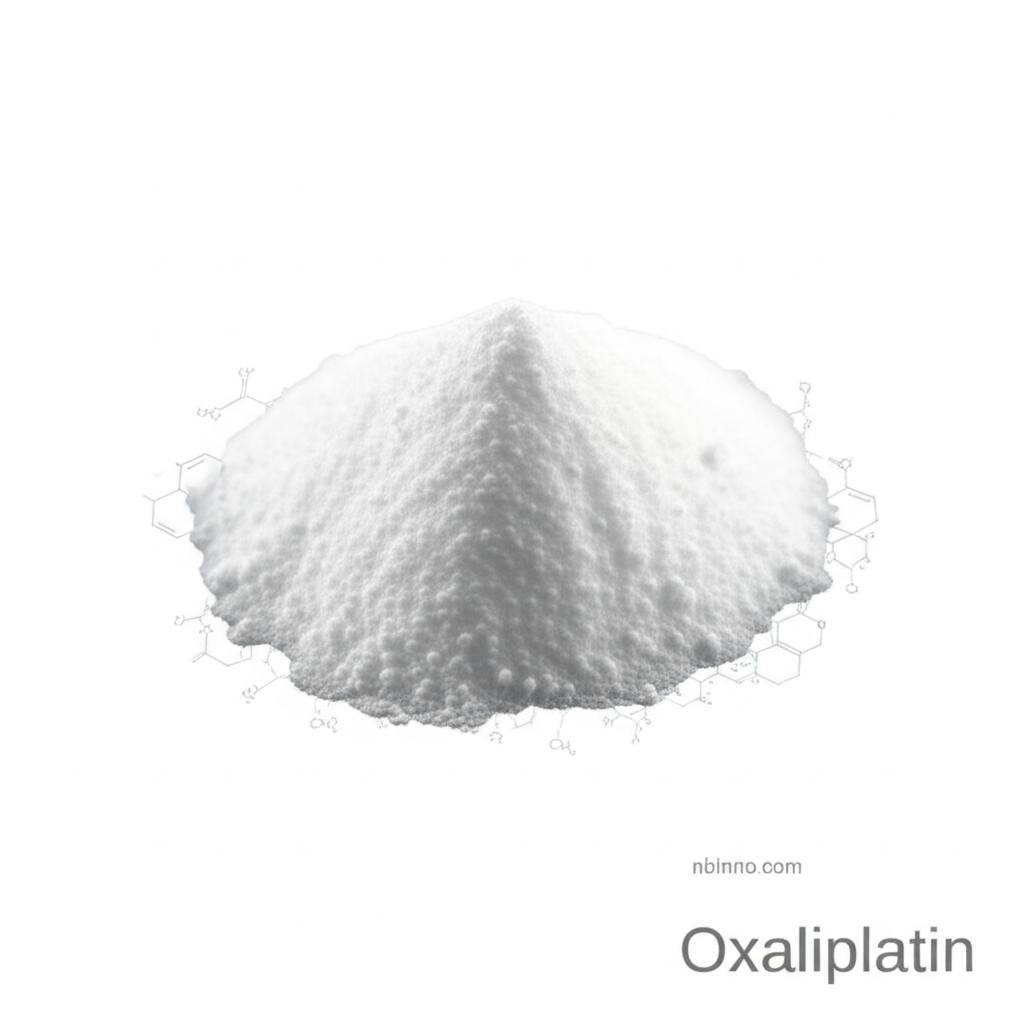Oxaliplatin CAS 61825-94-3: A Comprehensive Guide
Explore the vital chemical properties, critical applications, and essential safety data for this key pharmaceutical compound.
Get a Quote & SampleProduct Core Value

Oxaliplatin
Oxaliplatin, identified by CAS number 61825-94-3, is a crucial platinum-based antineoplastic agent widely utilized in chemotherapy. Its primary value lies in its efficacy in treating advanced stages of colorectal cancer and its role as an adjuvant therapy following surgical intervention for severe colon cancer. The compound is characterized by its high purity (98%) and its appearance as a white crystalline solid, making it a reliable choice for pharmaceutical formulations.
- Explore Oxaliplatin CAS 61825-94-3 usage in medical treatments for advanced colorectal cancer.
- Understand the intricacies of Oxaliplatin molecular structure and weight (C8H14N2O4Pt, 371.25 g/mol).
- Learn about the standard Oxaliplatin purity and appearance, ensuring quality for pharmaceutical applications.
- Discover the diverse Oxaliplatin applications in medicine, extending beyond colorectal cancer.
Key Advantages
Therapeutic Efficacy
Oxaliplatin offers significant therapeutic benefits in managing advanced colorectal cancer, contributing to improved patient outcomes and treatment response rates.
Chemical Purity
With a stated purity of 98%, this pharmaceutical intermediate ensures reliability and effectiveness in chemotherapy regimens, aligning with stringent industry standards.
Supply Chain Reliability
The product is available with a supply ability of 50 Tons and can be transported via Ocean, Land, or Air, with ports like Shanghai and Qingdao being key logistical hubs, supporting consistent availability for manufacturing.
Key Applications
Oncology Treatment
As a cornerstone in chemotherapy, Oxaliplatin is instrumental in treating advanced colorectal cancer, offering a crucial line of defense.
Adjuvant Therapy
Its use as adjuvant therapy following surgery for severe colon cancer helps to eliminate residual cancer cells and improve long-term prognosis.
Pharmaceutical Synthesis
Serves as a vital intermediate in the synthesis of various anti-cancer drugs, underpinning the development of new therapeutic agents.
Research & Development
Valuable in research settings for studying mechanisms of cancer cell resistance and developing novel platinum-based therapies.
